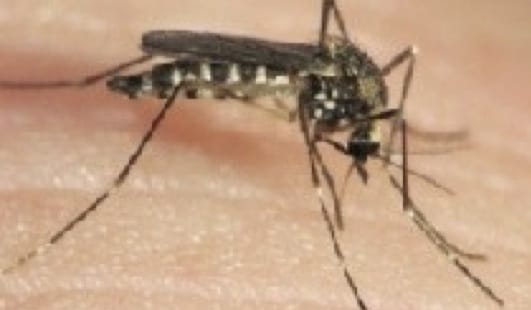Summer vacation has started for many people. Depending on all travel advice, the Netherlands is preparing for the holiday. Once arrived at the destination: mosquito and tick bites. Nasty tickles, red spots and bumps, but even more annoying: these insects can also transmit diseases to humans and animals. The UMC Utrecht, Leiden University Medical Center (LUMC) and Erasmus MC will start a study this summer and are looking for 1,000 travelers who want to contribute.
“It is important that we learn more about the risks to the Netherlands when it comes to these infections due to mosquito and tick bites,” says Patricia Bruijning, pediatrician-epidemiologist at UMC Utrecht. Together with her Leiden colleagues, she is researching the One Health Travelstudy the occurrence of mosquito and tick-borne infections in Dutch travellers.
Arbovirus dangerous for returning travelers
The research examines West Nile, Usutu, Sindbis, Chikungunya, Dengue and Zika virus infections. These infections are transmitted to humans through the bite of an infected mosquito. The tick-borne encephalitis virus is also being examined. This virus is transmitted to humans through the bite of an infected tick. We call these virus infections “arbovirus” infections.
It is not yet known how common these infections are among returning travelers, as the symptoms are often mild and resemble flu-like symptoms. It is also possible that you do not notice the infection at all. The undetected infections among returning travelers can pose a threat to public health. Patricia: “In rare cases, these infections can also be serious and lead to, for example, brain inflammation or shock. We therefore prefer to keep them out in the Netherlands.”
Tips to avoid bites
It is important to protect yourself against mosquito and tick bites. There are therefore a number of precautionary actions. “Always wear long clothes when you are in an area with a lot of mosquitoes, use Deet and check yourself regularly for ticks,” says Patricia.
Are you going on holiday soon and do you want to contribute to this research?
If you are traveling within Europe (including the Netherlands) or the Caribbean Netherlands and you are 18 years or older, you can participate in the study.
- If you participate, it is for the total duration of your holiday up to 10 days after returning home;
- You can monitor whether you have been exposed to mosquito and/or tick bites via the OHtravelApp app;
- When you get home, you take some blood yourself by means of a finger prick. That is being tested for the prevention of mosquito-borne infections.
- More information about the research and registration can be found at www.ohtravel.nl.
This research is part of a large Dutch project called One Health PACT into the emergence of mosquito-borne infections in the Netherlands and factors that influence this.
Source: Utrecht UMC
–


